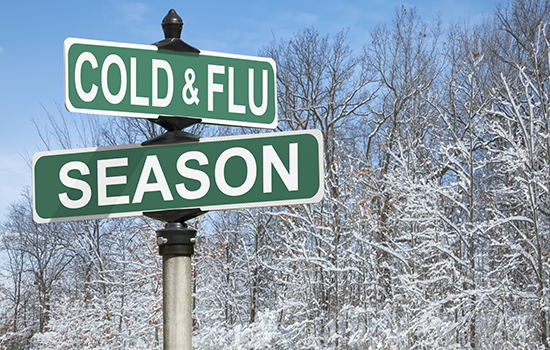
Duke Vaccine Institute at Forefront of New Federal Effort to Improve Flu Shots

Everyone knows someone who got their seasonal flu shot and still got the flu. There is already concern this year’s vaccine may not match the viruses soon to be in circulation.
The National Institute of Allergy and Infectious Diseases (NIAID) has launched a massive, coordinated multidisciplinary effort to develop better influenza vaccines and awarded the Duke Human Vaccine Institute (DHVI) three contracts worth up to $400 million over seven years, if fully optioned, for a major role in it. This would be the largest federal multi-contract award supporting one program in Duke’s history.
The ambitious initiative, called the Collaborative Influenza Vaccine Centers (CIVICs) program, aims to develop a longer-lasting, more broadly protective vaccine to replace the seasonal flu shot. It is funding four academic research institutions and one company to work together to develop so-called universal influenza vaccines.
“With the CIVICs program we hope to encourage an exchange of ideas, technology and scientific results across multiple institutions to facilitate a more efficient and coordinated approach to novel influenza vaccine development,” said NIAID Director Anthony S. Fauci, M.D.
Why Seasonal Flu Sickens and Kills
Seasonal influenza causes hundreds of thousands of hospitalizations and tens of thousands of deaths in the United States each year, according to the Centers for Disease Control and Prevention. People most at high risk for the most serious complications, even death, from flu are children, pregnant women, older adults and anyone with a compromised immune system or certain other underlying health conditions. However, some strains of flu have been known to kill otherwise healthy adults.

While current seasonal influenza vaccines are widely available and provide important public health benefit, they could be improved. Notably, they do not always protect against all strains of circulating influenza viruses.
Each year, months ahead of the flu season, scientists must make their best prediction as to which circulating viruses will be dominant. New seasonal influenza vaccines must be manufactured, distributed and administered to keep up with constantly evolving influenza viruses. This process can be slow, and if a drifted seasonal influenza virus emerges, that can impact the effectiveness of the vaccine against that virus. The relatively long timeline for vaccine production and the rapidly changing nature of influenza viruses poses a unique and difficult public health challenge.
Duke Has Major Role in CIVICs
Duke is the only institution to receive a contract in each of the three CIVICs components, including work to design and evaluate influenza vaccine approaches, manufacture and evaluate the safety and toxicity of vaccine platforms and conduct clinical trials for influenza vaccines.
“The Duke Human Vaccine Institute has established a niche working on very difficult vaccines and scientific problems that are not easily solvable outside the context of team science,” said Barton Haynes, M.D., director of DHVI.
The CIVICs Vaccine Centers will focus on designing novel vaccine candidates and delivery platforms with an emphasis on cross-protective vaccine strategies that could be used in healthy adults as well as populations at high risk for the most serious outcomes of influenza, such as children, older adults, and pregnant women. They also will focus on new ways to study influenza viruses and the human immune response to them through computer modeling, animal models and human challenge trials.
M. Anthony Moody, M.D., associate professor in the departments of Pediatrics and Immunology at Duke School of Medicine, will lead DHVI’s vaccine development contract. First-year funding is $7.9 million, with up to $107.5 million over seven years if all contract options are awarded. The Icahn School of Medicine at Mount Sinai, New York City, and the University of Georgia, Athens, also received awards to work on vaccine development.

“A big part of the vaccine center is really focused on basic immunology,” Moody said. “We will be asking fundamental questions about what we want, how to measure success, and then how to achieve it. This initiative brings together a great group of scientists in the field who have a lot of ideas. We’ll test those ideas and really let the science drive it and figure out which ones are best.”
The most promising candidate vaccines will advance to clinical trials conducted by the CIVICs Clinical Cores. Emmanuel “Chip” Walter, Jr., M.D., M.P.H., a professor in the Department of Pediatrics at Duke University School of Medicine and chief medical officer of DHVI, will lead the clinical trials contract. First-year funding for DHVI’s role is $7.9 million, with up to $176.6 million possible over seven years if all options are exercised. The University of Maryland School of Medicine, Baltimore, also received a clinical trials contract.
Vaccine candidates will first be evaluated for safety and immunogenicity in small Phase 1 clinical trials conducted among healthy adult participants. Successful vaccine candidates may eventually be advanced to larger Phase 2 clinical trials in healthy adults, or in specific age groups or at-risk populations.
“We have a broad range of investigators and expertise that has placed the DHVI on the forefront of vaccine development,” Walter said, citing both the center’s track record in HIV (human immunodeficiency virus) vaccine development as well as for flu. Responding to the 2009 pandemic flu, he said the DHVI team was involved in testing a vaccine before it was used in the broader population. He noted that the DHVI contract on this portion of the project provides for work with researchers at the University of Iowa and Imperial College London.
DHVI is the only contract recipient for vaccine production under the CIVICs project. First-year funding for this portion of the project is $13.8 million, with up to $116.7 million over seven years if all options are exercised. Matthew R. Johnson, Ph.D., senior director of product development at DHVI will lead this effort.
Johnson oversees a facility within DHVI that houses state of-the-art equipment and meets Good Manufacturing Practice standards for production of vaccine products used in proof-of-concept Phase 1 clinical trials.
“We have research scientists working directly with the teams that are developing manufacturing processes and then producing human vaccines,” Johnson said. “What that enables us to do is speed the development of novel therapies from the research bench all the way to human clinical trials.”
Digital Infuzion, Inc., a biomedical informatics firm in Gaithersburg, Md., will serve as the CIVICs Statistical, Data Management, and Coordination Center.
About DHVI
In addition to researching HIV and influenza, investigators at DHVI conduct basic and translational research to develop vaccines, therapeutics and diagnostics for tuberculosis, malaria, Ebola, cytomegalovirus and the zika flavivirus.
The roots of DHVI began in 1985, with formation of a working group to make a vaccine soon after discovery of HIV. DHVI was formed in 1990.
“For decades, Duke researchers have been at the forefront of advancing the technology and science of vaccine development for infectious diseases, particularly HIV,” said Mary E. Klotman, M.D., dean of Duke University School of Medicine. “Now, it is exciting to see the progress they have made to inform and impact vaccine development for many other areas.
